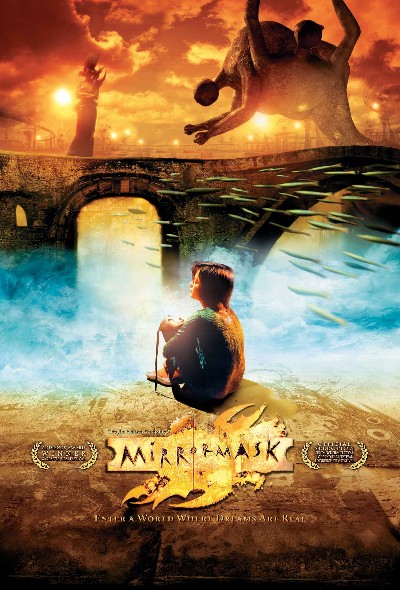Film:
The Wedding Dress (TV), 2001
Starring Neil Patrick Harris, Tyne Daly, Margaret Collin, and Kathryne Dora Brown.
Synopsis (From NetFlix):
A beautiful wedding dress moves throughout the six degrees of separation when it ends up in the hands of six different brides-to-be and changes their lives forever in ways they could never have expected. Tyne Daly and Neil Patrick Harris (television’s “Doogie Howser”) star in a romantic drama that’s perfect for Valentine’s Day … or any day.
My Thoughts (The first half is spoiler free and I give fair warning when it changes):
The first thing I would like to talk about is prejudice and expectations. When I got this movie off Amazon as a gag gift for my sister (who loves Neil Patrick Harris) I did not expect to actually like it. It’s a made-for-TV movie after all! And a schmalzy looking one at that! But I was wrong. This movie is amazing, and wonderful, and touching, and fully deserving of a second viewing. I highly recommend it and luckily it is available through NetFlix (or my sister if you know her and she’s willing to lend it to you).
I may sound tongue in cheek, but this actually is a big lesson for me. Prejudice can be destructive and I could have easily never watched this beautiful film because of mine. We often speak of the big prejudices like racism and sexism and xenophobism, but I think the little prejudices can creep up on us all and keep us from both fully enjoying life and from creating a more perfect and unified world. Prejudice can keep us from thinking we have something to learn.
“For a period of six thousand years history informs us about the world of humanity. During these six thousand years the world of humanity has not been free from war, strife, murder and bloodthirstiness. In every period war has been waged in one country or another, and that war was due to either religious prejudice, racial prejudice, political prejudice or patriotic prejudice. It has, therefore, been ascertained and proved that all prejudices are destructive of the human edifice.” ~ ‘Abdu’l-Bahá
Ok, so that quote was about the big prejudices, but the last line says “all prejudices are destructive”. I rest my case, now onto the actual movie.
::Spoilers may leak out beyond this point::
The film begins with letters written between a soldier and his fiancee during World War II. She finds out he is being sent home soon and wants to marry her the moment he arrives so her family makes her a wedding dress. She dons it on the expected day but unfortunately a messenger arrives instead bestowing tragic news. The no-longer-bride-to-be places the dress in a trunk, but not before blessing it to help a woman find the happiness in marriage she was unable to.
Yes, that takes place in less than five minutes and already I was in tears. However it also made me think. This woman had all the reason in the world to curse God and the world for breaking her heart, yet she was able to practice grace and to wish happiness on others despite tragedy. I can understand why the soldier fell in love with her. That really is a character trait many aspire to in times of crisis, though we all can fall short.
After this we are transported to present day. Travis Cleveland (Neil Patrick Harris), A grand-nephew is about to get married and would like his bride to wear the dress. However she would rather wear some trendy designer thing than the outdated period dress with history and love sown in. (Ironically the dress pictured on the cover is the trendy thing… oh marketers…) While the dress itself is important to Travis, what is more important is the discovery of his future bride’s dishonesty, materialism, and vanity. Not only was she not willing to wear the dress, which could have been overlooked (especially since brides can be stressed out and want things to be perfect) but she lied about it and in the argument that followed even bigger lies were revealed.
Again a lesson for us all to ponder. We may think “It’s just a silly dress” but through it character was revealed. How often does this happen in life? Something seemingly insignificant shows to us or the world our true character. And I don’t just mean negatively, but positively too. People exhibit detachment, or ego, generosity or dishonesty over “small” things everyday. Much like my earlier aside on prejudice, we can learn a lot from these smaller acts.
Luckily for us viewers we do not have just one or two stories to learn from, but six! And all of them deal with learning and growth as well as love. But not the typical “hollywood” love, all glitter and no substance, but love proved through deeds. One couple endeavors to make ends meet through sacrifice and hard work, both putting the other first albeit comically. Another couple struggles as the future husband learns to become responsible in order to win the heart of his bride who is skeptical that he does not know how serious marriage is. In a third story a widower and a divorcee learn about second chances, overcoming grief and anger, and learning to trust again. In another a feud is set right when two people learn to overcome their differences and forgive one another.
There is neither time to go into each of these stories, nor would I want to ruin them but I would like to say that this is a wonderful movie to view when thinking about preparing for marriage. While it seems to be about the dress, it’s what’s underneath that counts. It is the interactions of the characters, and the virtues they exhibit and develop throughout their trials. Patience, steadfastness, flexibility, hardwork, forgiveness, loyalty, resilience, fellowship, and love… I could put this film in every category!
So do yourself a favor and watch this movie! It’s heartwarming and perfect for Valentine’s Day or the New Year when you want to travel through 6 journeys of love.
“Be to each other as heavenly lovers and divine beloved ones dwelling in a paradise of love. Build your nest on the leafy branches of the tree of love. Soar into the clear atmosphere of love. Sail upon the shore less sea of love. Walk in the eternal rose garden of love. Bathe in the shining rays of the sun of love. Be firm and steadfast in the path of love. Perfume your nostrils with the fragrance from the flowers of love. Attune your ears to the soul-entrancing melodies of love. Let your aims be as generous as the banquets of love, and your words as a string of white pearls from the ocean of love. Drink deeply of the elixir of love, so that you may live continually in the reality of Divine love.” ~Abdu’l-Baha


